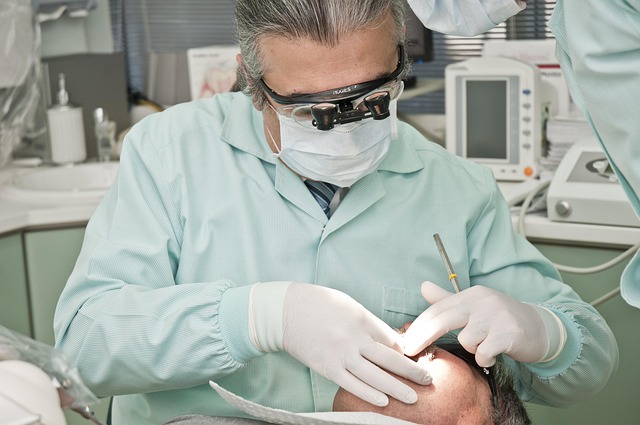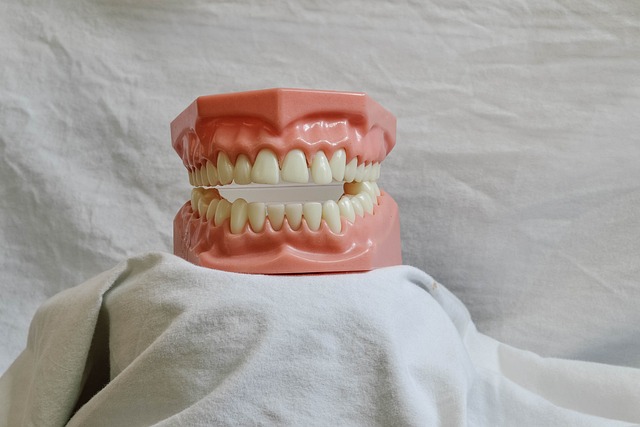Gum disease, caused by bacterial plaque, is a prevalent oral health issue affecting millions globally, including Eugene Oregon residents. Symptoms like bleeding gums and bad breath require immediate attention. Periodontists in Eugene specialize in treating gum inflammation and bone loss through advanced treatments like deep cleaning and surgery, collaborating with general dentists for tailored care. Regular dental check-ups with a dentist or periodontist in Eugene are crucial for early detection and preventing systemic issues linked to gum disease, such as heart disease and diabetes. Choosing the right treatment plan, including deep cleaning or surgical interventions, is vital for maintaining optimal oral health.
Looking for top-notch gum treatment plans in Eugene, Oregon? Understanding gum disease is the first step towards optimal oral health. This article delves into the symptoms, causes, and effective treatments, with a special focus on the role of a periodontist. We’ll guide you through choosing the best gum treatment plan tailored to your needs, highlighting the expertise of local dentists and periodontists in Eugene, Oregon.
- Understanding Gum Disease: Symptoms and Causes
- The Role of a Periodontist in Effective Gum Treatment
- Choosing the Right Gum Treatment Plan for You in Eugene, Oregon
Understanding Gum Disease: Symptoms and Causes

Gum disease is a common oral health issue that affects millions worldwide, and Eugene Oregon residents are no exception. It’s essential to understand this condition to maintain optimal dental health. Gum disease, or periodontitis, is essentially an infection in the gums caused by bacteria. These bacteria form plaque, which can harden into tartar, leading to inflammation and potential damage to gum tissue and teeth.
Symptoms may include bleeding gums, especially during brushing, bad breath, tender or swollen gums, and loose or shifting teeth. The causes are diverse, from poor oral hygiene, certain medications, and hormonal changes to genetic predisposition and lifestyle factors like smoking. Regular dental check-ups and visits to a periodontist in Eugene Oregon can help detect gum disease early, making treatment more effective.
The Role of a Periodontist in Effective Gum Treatment

When it comes to effective gum treatment plans in Eugene Oregon, the role of a periodontist cannot be overstated. These specialized dentists focus exclusively on the structures supporting your teeth, including gums and jawbone. They play a crucial role in diagnosing and treating gum disease, which is a common yet serious oral health issue affecting millions worldwide. By addressing gum inflammation, bleeding, and potential bone loss, periodontists help patients maintain optimal oral health and prevent the need for extensive dental procedures down the line.
A periodontist in Eugene Oregon brings advanced knowledge and skills to the table, offering a range of treatments from deep cleaning (scaling and root planing) to surgical interventions for severe cases. They work collaboratively with general dentists, providing comprehensive care tailored to each patient’s unique needs. Regular visits to a periodontist are essential for maintaining healthy gums and ensuring long-lasting oral health, especially considering the significant link between gum disease and systemic conditions like heart disease, diabetes, and respiratory issues.
Choosing the Right Gum Treatment Plan for You in Eugene, Oregon

Choosing the right gum treatment plan is essential for maintaining optimal oral health in Eugene, Oregon. When dealing with gum disease, it’s crucial to consult a periodontist who specializes in diagnosing and treating periodontal issues. A dentist in Eugene can provide a comprehensive assessment of your mouth’s condition and recommend suitable treatments.
The first step involves understanding the severity of your gum disease. Periodontists use specific tools and techniques to examine your gums, teeth, and oral cavity. Based on this evaluation, they’ll create a tailored plan that could include deep cleaning procedures, such as scaling and root planning, to remove plaque and tartar buildup below the gumline. In more advanced cases, surgical interventions might be necessary to restore gum health and prevent further complications.














